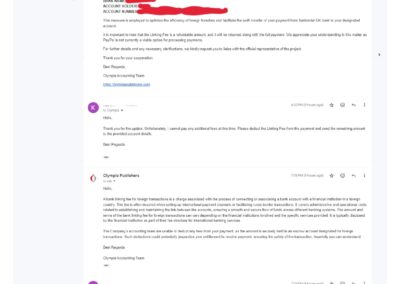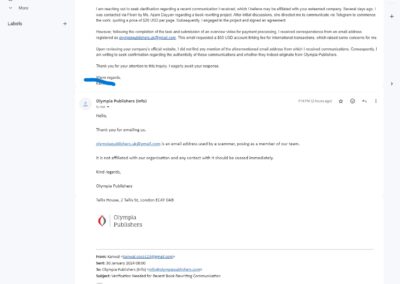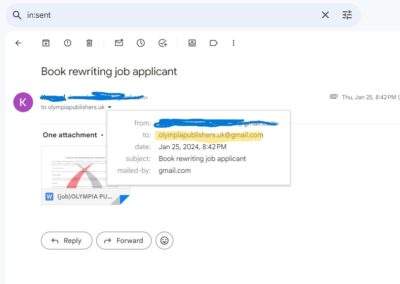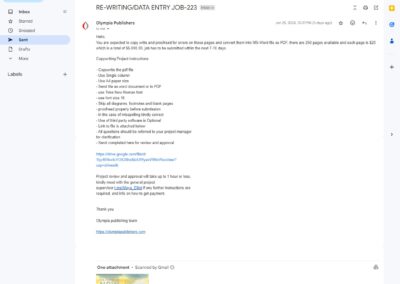Beware of Scammers on Freelancing Platforms
My Encounter with the “Olympia Publishers” Scam
In the vast world of freelancing, opportunities abound, but so do the risks. Recently, I fell victim to a sophisticated scam orchestrated by individuals preying on unsuspecting freelancers like myself. Let me share my cautionary tale to prevent others from falling into the same trap.
The Initial Contact
It all began innocuously enough on Fiverr, a popular platform connecting freelancers with clients. A user named Azam Dayyan approached me for writing-related work, expressing interest in my services. Initially, everything seemed legitimate, but little did I know, it was the beginning of an elaborate scheme.
Moving to Telegram
After our initial conversation on Fiverr, Azam requested that we communicate via Telegram. At the time, I didn’t think much of it; many clients prefer external communication channels. However, this shift marked the beginning of a subtle transition from legitimacy to deception.
The Task
Azam presented me with a seemingly straightforward task: to rewrite 250 pages of content for Olympia Publishers, promising a generous payment of $20 per page. Eager to seize the opportunity, I agreed to the terms and conditions outlined in the agreement provided.
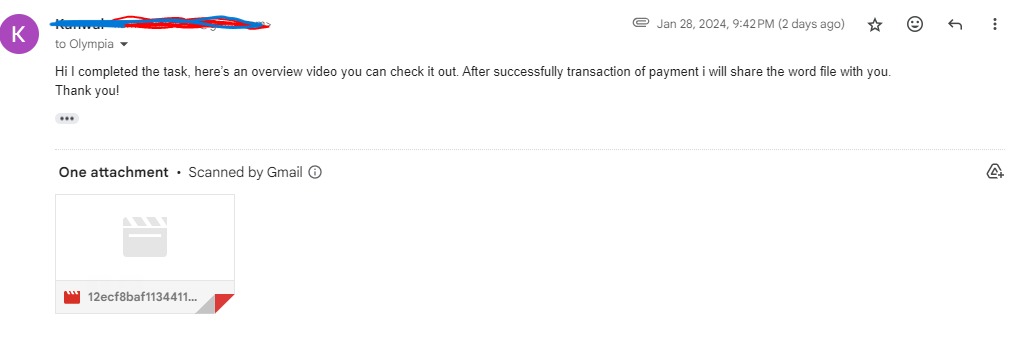
The Agreement
The agreement, seemingly official, detailed the project description, compensation, payment terms, and ownership rights. It appeared professional, further convincing me of the legitimacy of the endeavor. However, a critical oversight on my part would soon unravel the facade.
The Deceptive Domain
Upon reviewing the agreement, I noticed that the email address olympiapublishers.uk@gmail.com provided did not match the domain associated with Olympia Publishers. Ignoring this red flag, I proceeded, unaware of the impending danger lurking beneath the surface.
Completion of the Task
Diligently, I completed the task within the stipulated time frame, eager to deliver quality work and receive the promised compensation. However, little did I know, my efforts would be in vain, as the true intentions of the perpetrators began to emerge.
The Payment Conundrum
Upon submission of the completed project, I received an email confirming its acceptance and promising the imminent transfer of $5,000. Excitedly anticipating payment, I was blindsided by a subsequent demand for a “Linking Fee” purportedly required to expedite the transaction.
Unraveling the Scam
Doubt creeping in, I reached out to Olympia Publishers directly, only to discover that the email address provided was associated with fraudulent activities. Realization dawned upon me as the intricate web of deception began to unravel before my eyes.
My harrowing experience serves as a stark reminder of the dangers lurking in the online freelancing world. Vigilance and skepticism are paramount when engaging with unfamiliar entities, and thorough research can mean the difference between success and exploitation. Let my story serve as a cautionary tale to fellow freelancers, urging them to remain vigilant and discerning in their pursuits. Together, we can combat fraud and safeguard the integrity of our profession.

